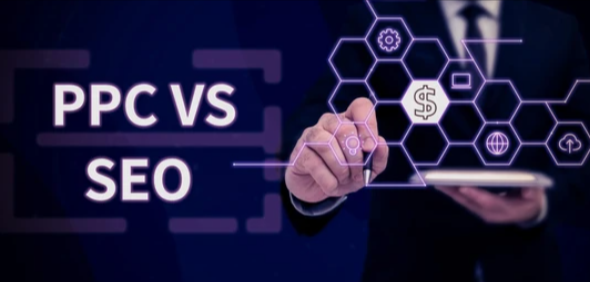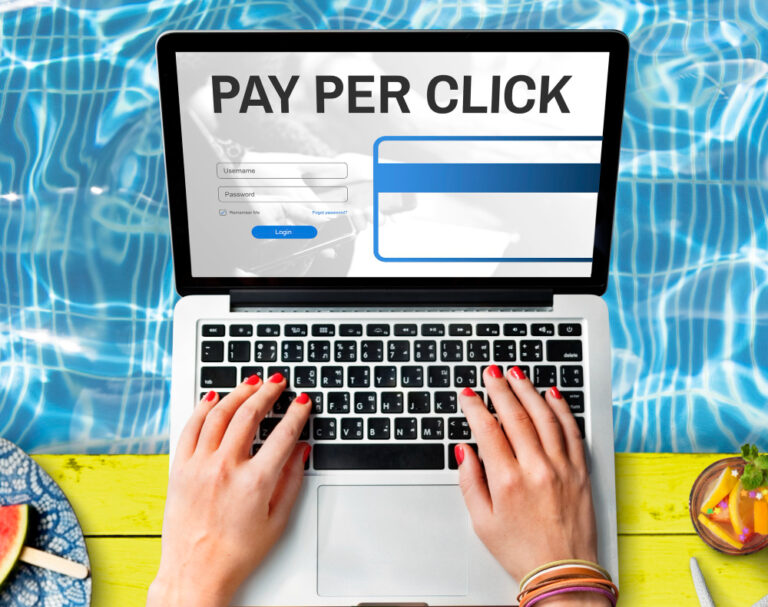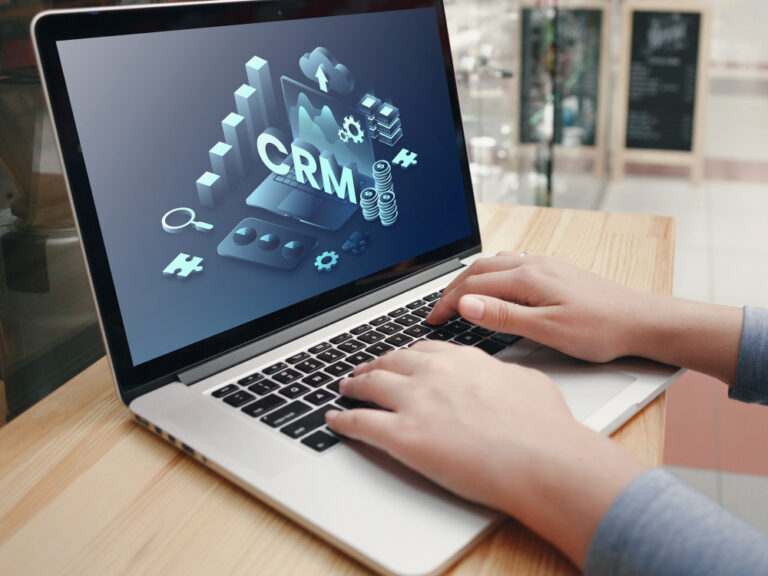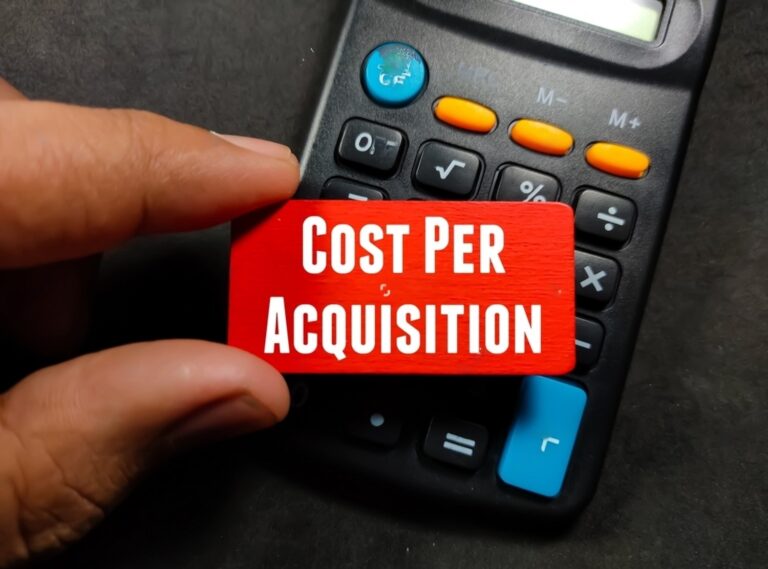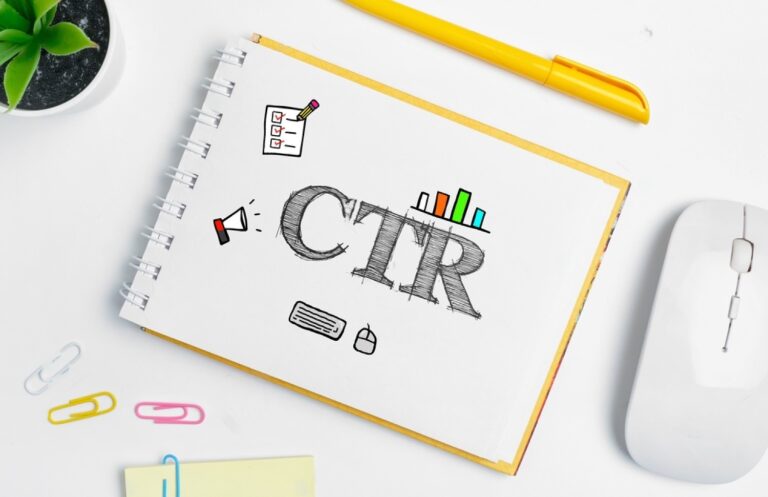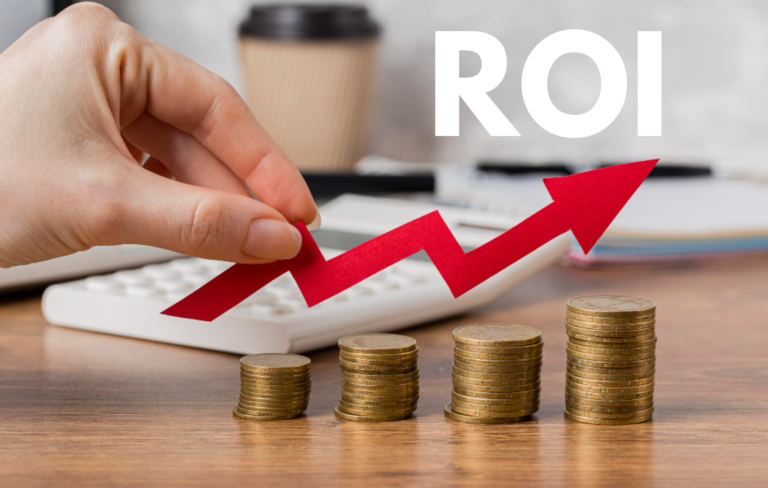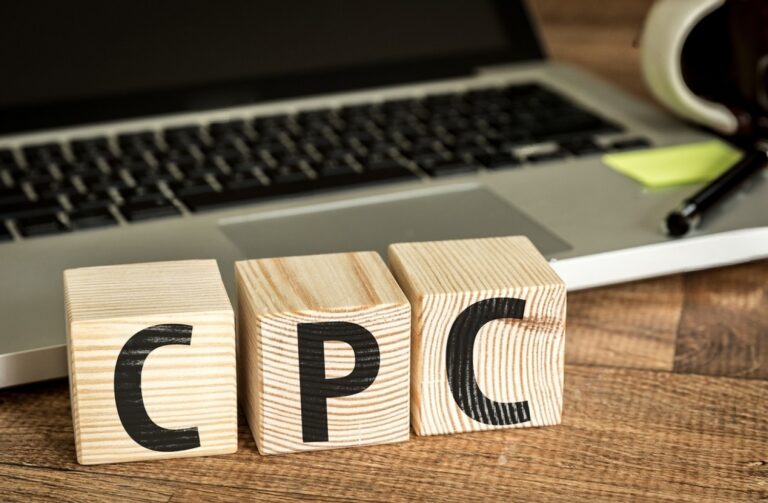SEO or PPC: Which Search Marketing Method Suits Your Business Best?
When it comes to search marketing, knowing the ropes of SEO versus PPC is key for a winning strategy. SEO (Search Engine Optimization) and PPC (Pay-Per-Click) are the dynamic duos of online visibility. SEO works its magic by optimizing your content for search engines, making sure your website shows up when people search. On the flip side, PPC is like a shortcut—paying for ads to appear at the top of search results. Understanding these differences is crucial. SEO is the long game, boosting organic traffic steadily, while PPC gets you immediate visibility, but at a cost. Knowing when to use each—SEO for the long haul and PPC for quick wins—helps create a killer strategy. Balancing both is where the real magic happens in nailing that effective search marketing plan!
What is SEO? and how does it help in Growing Your Organic Traffic
SEO stands for Search Engine Optimization, is like the secret sauce for your website’s success. It’s all about fine-tuning your site to climb up the ranks in search engine results—without paying for those top spots. Think of it as the magic that boosts your online visibility and brings in loads of organic traffic. How does it work? By tweaking your content, choosing the right keywords, and even shaping up your website’s structure to be more search engine-friendly.
Now, when it comes to SEO versus PPC (Pay-Per-Click), SEO’s the patient game. It’s about the slow burn, steadily climbing those rankings and bringing in traffic over time. PPC, on the other hand, is more instant—you pay for those prime ad spots. Both are great strategies, but SEO? It’s like planting seeds for long-term growth—it just keeps giving!
SEO, or Search Engine Optimization, is the strategy that helps your website stand out in the vast online world. It’s not about paying for ads; it’s about earning your spot on the search engine results page (SERP) organically. SEO involves several tactics:
1. Content Optimization: Creating high-quality, relevant content that aligns with what users are searching for. This includes using the right keywords strategically throughout your content.
2. Keyword Research: Identifying the terms and phrases your target audience is using in their searches and incorporating those keywords naturally into your content. Trying to find high volume and low competition keywords.
3. Website Structure Enhancement: Improving the technical aspects of your site, such as optimizing loading speed, ensuring mobile-friendliness, and having a clear, user-friendly structure.
4. Link Building: Acquiring quality backlinks from reputable sites, as search engines consider these links as a vote of confidence in your site’s credibility.
When comparing SEO to PPC (Pay-Per-Click), SEO is the long-term game plan. It’s about gradually climbing up the search ranks and attracting organic traffic over time. PPC, on the other hand, offers immediate visibility by paying for ads, providing quick results but requiring ongoing investment for continued visibility. Both strategies have their strengths, but SEO’s organic growth potential makes it an invaluable asset for sustainable online presence and traffic generation.
When to Use SEO?
SEO (Search Engine Optimization), is your go-to when you want your website to show up naturally in search results. It’s like making your site a magnet for search engines like Google. You’d use SEO to boost your website’s visibility and attract organic traffic without paying for each click.
Now, when it comes to PPC (Pay-Per-Click), it’s like fast-tracking to the top of search results. With PPC, you pay for ads to appear at the very top of search pages. It’s great for quick visibility and immediate results. The main difference? SEO takes time to build up and is about earning your spot, while PPC gets you there instantly, but you pay for each click.
So, use SEO when you’re in for the long haul, aiming to gradually climb search rankings organically. PPC? That’s your speed dial for instant visibility when you’re ready to invest in immediate results or specific campaigns. Both have their strengths depending on your goals and timeline!
- Long-Term Strategy: SEO is a marathon, not a sprint. It involves strategic planning and consistent effort over time. It’s about gradually building authority, credibility, and trust with search engines and users. By continuously optimizing your website, content, and online presence, you aim to secure long-term success in organic search results.
- Organic Traffic: SEO’s primary goal is to attract organic traffic, meaning visitors who find your site through unpaid search results. It focuses on optimizing various elements of your website to match search engine algorithms, improving your website’s visibility and attracting relevant audiences genuinely interested in your content or services.
- Content Optimization: Content is king in SEO. It’s not just about keywords; it’s about creating valuable, relevant, and engaging content that satisfies user intent. SEO involves crafting high-quality content, from blog posts to landing pages, that resonates with your audience’s needs and preferences while aligning with search engine guidelines.
- Building Credibility: SEO isn’t just about keywords and links; it’s about building credibility and trust. Search engines prefer websites that consistently provide valuable content, a great user experience, and demonstrate authority in their industry. By optimizing your website and consistently delivering valuable content, you establish trust with both search engines and users.
- Cost-Effectiveness: While SEO efforts may take time to yield results, once established, organic traffic doesn’t incur direct costs per click. Compared to PPC advertising, where each click on your ads requires payment, SEO becomes cost-effective in the long run as it continues to drive traffic without ongoing payment for each visit.
What is PPC?
What is PPC – PPC stands for “Pay-Per-Click.” Now, what’s that all about? Well, it’s a digital advertising term where advertisers pay a fee each time their ad gets clicked. Essentially, it’s a way to buy visits to your site rather than earning them organically.
So, how does PPC work? When you search for something on a search engine, like Google, the top results you see are labeled as “Ad” – that’s PPC in action. Advertisers bid on specific keywords, and when someone searches for those terms, the highest bidder’s ad gets displayed.
The cool part about PPC is that it’s super targeted. You can tailor your ads to appear when people are searching for exactly what you offer. It’s like putting your business front and center when potential customers are looking for your products or services. Plus, you only pay when someone actually clicks on your ad, hence the “pay-per-click” meaning.
In a nutshell, PPC is a nifty way to get your business noticed online, driving targeted traffic to your site and hopefully turning those clicks into customers!
When to Use PPC?
So, when’s the best time to use PPC? Well, it’s fantastic for short-term campaigns, for example seasonal sales or limited-time offers. Also, if you’re aiming to target specific demographics or locations, PPC allows precise targeting, ensuring your ads reach the right audience and if you’re just starting in the digital world and want that initial boost of traffic to your website, PPC works wonders! It’s like turning on a tap of potential customers interested in what you offer.
Remember, PPC isn’t a one-size-fits-all solution, but when used strategically, it’s a game-changer, delivering quick and measurable results for your marketing goals.
Benefits of PPC (Pay-Per-Click)
1. Immediate Visibility: PPC (Pay-Per-Click) advertising ensures immediate visibility for your brand or products. When time is of the essence, such as during promotions or new product launches, PPC campaigns place your ads right at the top of search results or on relevant websites. This instant prominence increases the chances of users clicking on your ad, giving your offerings immediate exposure.
2. Targeted Campaigns: PPC allows you to precisely target your desired audience. Whether it’s based on demographics, locations, interests, or even specific keywords, PPC enables you to reach the exact people who are most likely to be interested in what you offer. This laser-focused targeting ensures your ad budget is spent efficiently on those most likely to convert, maximizing the impact of your campaign.
3. Short-Term Goals: Ideal for short-term marketing objectives, PPC campaigns are effective for time-sensitive promotions. Whether it’s a seasonal sale, a limited-time offer, or a special event, PPC can swiftly drive traffic and conversions within a specific period. The immediacy and flexibility of PPC make it a valuable tool for achieving quick bursts of activity and sales.
4. Initiating Web Traffic: PPC is a fantastic way to kick-start traffic to your website, especially if you’re just entering the digital space or launching a new online presence. By bidding on relevant keywords, your ads appear prominently in search engine results, directing interested users straight to your site. It’s an effective method to generate initial interest and attract potential customers from the outset.
Using PPC strategically, considering these factors, helps you leverage its power for specific goals, ensuring you get the most out of your advertising efforts in the ever-competitive online landscape.
Difference Between SEO & PPC
1. Cost: SEO (Search Engine Optimization) relies on organic strategies to improve a website’s visibility in search engine results. It involves optimizing content, keywords, and site structure without direct financial costs. On the other hand, PPC (Pay-Per-Click) advertising incurs immediate costs for ad placements, where advertisers pay each time a user clicks on their ad.
2. Traffic: SEO primarily generates organic traffic by enhancing a website’s ranking in search engine results pages (SERPs) through optimization efforts. Meanwhile, PPC drives paid traffic by displaying ads to users searching for specific keywords or browsing relevant sites, encouraging immediate clicks to the advertised site.
3. Time: SEO is a long-term strategy that requires time to yield significant results. Achieving higher organic rankings and visibility takes time due to algorithm changes and competition. In contrast, PPC offers instant visibility. Once the campaign is set up, ads can appear immediately in search results or on partner websites, providing immediate exposure and potential traffic.
4. Positioning: SEO aims to secure top organic rankings in search engine results, striving to appear among the highest-ranking websites for specific keywords. PPC, on the other hand, ensures top ad placements by bidding on keywords. Advertisers can secure prime positions for their ads in search engine results or on partner websites, targeting their audience effectively.
Understanding these differences helps in choosing the right strategy or a blend of both SEO and PPC to achieve specific marketing goals, whether it’s long-term organic growth or immediate visibility and traffic.
SEO PROS and CONS
SEO Pros:
1. Long-Term Visibility: SEO efforts establish a strong foundation for your online presence, leading to enduring visibility in search engine results. By consistently optimizing your website with relevant content, proper keywords, and quality backlinks, your site’s visibility gradually improves and maintains a steady presence over time. This sustained visibility ensures that your website continues to attract organic traffic, even without continuous advertising expenditure.
2. Organic Traffic Growth: SEO drives organic traffic to your website. This means users find your site through search engine results, increasing the likelihood of attracting interested and relevant visitors. Organic traffic, once established, tends to grow steadily as your site climbs up the search engine rankings. Moreover, organic traffic is considered more credible and trustworthy by users, contributing to higher conversion rates and brand credibility.
SEO Cons:
1. Slow Results: SEO is not a quick-fix solution. Achieving significant results through SEO takes time due to the competitive nature of search engine rankings. It involves gradual improvements, and it may take several weeks or even months to see noticeable improvements in rankings and traffic. Patience and consistent effort are key to reaping the benefits of SEO.
2. Continuous Effort: SEO requires ongoing effort and adaptation. It’s not a one-time task but an ongoing process that demands regular updates, content creation, keyword optimization, and adapting strategies to align with changing search engine algorithms. Continuous monitoring and adjustment are crucial to maintain and improve rankings, making it a long-term commitment.
PPC PROS and CONS
PPC Pros:
1. Immediate Results: One of the most significant advantages of PPC is its ability to provide immediate results. Once a PPC campaign is launched, ads are displayed instantly in search results or on partner websites, driving immediate traffic to your site. This immediacy is beneficial for time-sensitive promotions or when seeking immediate visibility.
2. Precise Targeting: PPC allows precise targeting of your audience. Through keyword targeting, demographics, interests, or even specific locations, PPC campaigns can be tailored to reach the most relevant and potential customers. This precision ensures that your ads are shown to those who are more likely to convert, maximizing the efficiency of your advertising budget.
PPC Cons:
1. Costly: PPC can be expensive, particularly for highly competitive keywords or industries. Advertisers pay for each click or impression, and costs can quickly accumulate, especially if not managed effectively. The competition for top ad placements often drives up the cost per click (CPC), making it a costly venture, particularly for small businesses with limited budgets.
2. Ongoing Investment: Sustaining the benefits of PPC requires ongoing investment. Once PPC campaigns are paused or stopped, visibility and traffic generated by those campaigns decline. Therefore, to maintain a consistent flow of traffic and results, continual investment in PPC is necessary, making it an ongoing cost for businesses.
Which is Better for My Business – SEO VS PPC?
SEO VS PPC which is better – Deciding between SEO and PPC can be a bit like choosing between a slow burn and a quick spark. SEO (Search Engine Optimization) is like planting seeds and patiently nurturing them to grow. It takes time, but once those roots are deep, the rewards keep coming. On the other hand, PPC (Pay-Per-Click) is like striking a match; it’s immediate and can bring quick results, but you have to keep the flame alive by feeding it more resources.
SEO focuses on climbing those search engine ranks organically, optimizing your site, and building trust over time. It’s a long-term strategy, great for sustained visibility. PPC, however, is all about paying for instant visibility; you bid on keywords, and your ad pops up when those words are searched.
SEO or PPC: Keeping the Balance
Choosing between SEO (Search Engine Optimization) and PPC (Pay-Per-Click) often boils down to finding that sweet spot—a balance that works wonders for your business. SEO focuses on organic growth, optimizing your website to climb the search engine ladder steadily. It’s like tending to a garden; it takes time, but the results are long-lasting. On the flip side, PPC offers immediate visibility. You pay for ads that appear when certain keywords are searched, bringing quick but paid traffic.
The key is finding the right mix. SEO provides lasting visibility, while PPC offers immediate results. A balanced approach might mean starting with PPC for quick wins and supplementing it with SEO for long-term stability. It’s about understanding your business goals, target audience, and budget to strike that perfect equilibrium between the two strategies for maximum impact and sustainable growth.
SEO and PPC: An Integrated Strategy
Combining SEO and PPC can be a game-changer for businesses. SEO builds a strong foundation over time, enhancing your website’s visibility organically. Meanwhile, PPC offers immediate visibility by placing ads atop search results.
Together, they cover all bases: SEO nurtures long-term growth, boosting organic traffic, while PPC offers quick wins and targeted exposure. By analyzing PPC data, you can fine-tune your SEO strategy, optimizing for keywords that perform well.
This synergy maximizes your online presence. PPC fills immediate gaps while SEO steadily builds authority. It’s a powerful duo, ensuring consistent traffic flow and targeted visibility, creating a holistic approach to digital marketing that reaps both short-term gains and long-term success.
Wrap Up
Between SEO and PPC, there’s no definitive winner; instead, it’s about finding the right balance. SEO champions long-term growth, building authority brick by brick, while PPC offers immediate visibility to targeted audiences. Each method has its strengths and limitations. Embracing both, either independently or in tandem, harmonizes your search marketing efforts. Choose SEO for a marathon, PPC for a sprint, or amalgamate both for a synchronized strategy that caters to diverse business needs. Remember, it’s not a battle between SEO or PPC; it’s about leveraging their strengths to amplify your online presence and drive business success.

